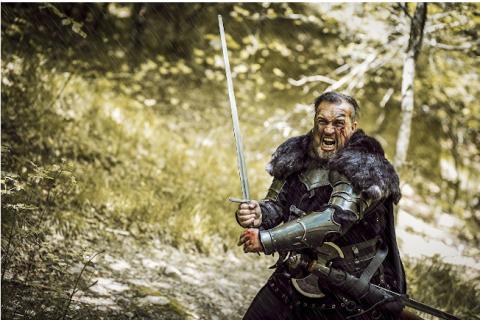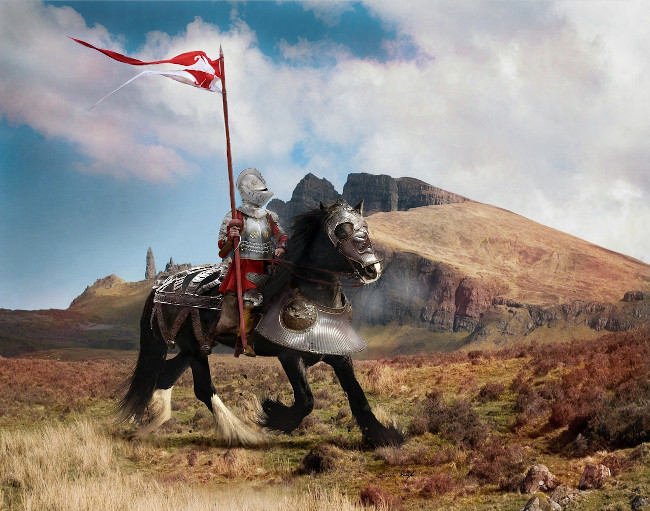Medieval Band of Brothers Fights to the Death in ‘Essex Dogs’

Essex Dogs: A Novel
By Dan Jones
Penguin
464 pages
The year is 1346, early days in the Hundred Years’ War between England and France. A band of 10 men, most of them veterans of prior medieval battles, lands on the Normandy coast. Their mission: locate and destroy as many French soldiers as possible, thus paving the way for King Edward III’s triumphant arrival.
Essex Dogs tells the story of these men, armed with swords, crossbows, and sledgehammers. There’s the leader, Loveday FitzTalbot; a dissolute priest called Father; the burly fighter known only as Scotsman; a fledgling archer named Romsford; and Pismire, a small but feisty warrior renowned for his ability to infiltrate the enemy camp.
Against this backdrop, Dan Jones—a noted historian of medieval times—offers brief moments of lyrical beauty: “The tide was now a long way out. The receding waters exposed ridged sand and shallow pools, which gleamed like polished glass in the afternoon sun.”

There are other quiet moments, too, when the Essex Dogs ride on horseback to their next military engagement, bivouac around the campfire at night, and so on. But make no mistake: Essex Dogs is a novel composed of “action prose”—blunt, feverish, staccato language, and, for long stretches, unremitting.
If your taste runs to vividly-depicted violence, Jones is your man:
“Loveday watched a man-at-arms from some other company running up the beach. He was hit with two bolts—one in his side and another through his neck. Blood spurted and the man fell to his knees, eyes wide and disbelieving, before a third bolt from some sharp shot above them flew into his face through his right cheek. He fell sideways, lay on the sand and did not get up.”
Despite the risks involved, Loveday’s primary goal in battle (after first putting his men in harm’s way for money), is to “bring every man back alive.” Considering the sky-high body count in skirmish after skirmish, it strains credulity that he could hope to achieve this objective:

“Loveday had seen many more battles since that one. All were different, yet all were also versions of the same one. And all were preceded by what lay ahead now. The march. The long stretches of boredom. Cooking, building fires. Robbing towns. Hurting civilians. Taking orders from idiots like Sir Robert, the latest of a long line of Essex knights of that name, whose whole purpose was paying lesser men to work their estates and risk their lives in war …”
Loveday’s sense that battles “were also versions of the same one” aptly describes the many clashes taking place throughout Essex Dogs.
The prose in Essex Dogs seldom settles down to take a breath. Dialogue often sounds less like how fierce warriors in the Hundred Years War might actually talk, and more like a movie version of how they might talk. No doubt a novel set in the 14th century, paced like a videogame, with Band of Brothers and Saving Private Ryan serving as templates, will draw in a lot of readers. Others, distracted by the thinly portrayed characters and a frenzy of bloodshed—not so much.
Author Bio:
Lee Polevoi, Highbrow Magazine’s chief book critic, is the author of a new novel, The Confessions of Gabriel Ash.
For Highbrow Magazine
Image Sources:
--Gioele Fazzori (Pixabay, Creative Commons)
--Kudybadorota (Pixabay, Creative Commons)
--Penguin































































































































































































































































































































